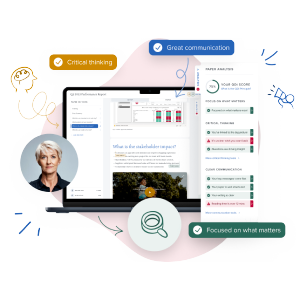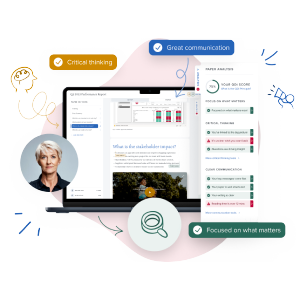-
Products
Products
-
Board management
-
- For fund & corporate services Tailor-made for multi-client, multi-fund structures with multi-boarded directors.
-
Management reporting
-
- Advisory services Supercharge your board with the science of board effectiveness.
-
Board effectiveness Tools
- Minute Writer Transform minutes creation with a purpose-built AI tool.
- Agenda Planner Create board meeting agendas focused on what matters most.
- e-Signatures Manage document approvals across all your boards and committees.
-
- Methodology
-
Insights
Insights & resources
-
By popular theme
- Board effectiveness How to unlock the power in your board of directors.
- Board & management papers Guidance on writing effective reports.
- Governance & compliance Best practice that goes beyond box ticking.
- AI-powered reporting How AI is shaping the world of business reporting.
- Collective intelligence Tap into your organisation’s brainpower.
-
By role
- Chief executive officer
- Chief financial officer
- Chair of the board
- Company secretary
- Non-executive director
- Chief operating officer
-
-
About
About us
-
Company
- Our story Why we’ve made it our mission to help business leadership to be powerful drivers of performance and a force for good.
- Clients From large enterprise to public sector, see why 60% of our business comes from referrals.
- Careers Looking to work with us? See our current open positions.
- Press Everything we’ve contributed to or been covered in.
-
Think Tank
- Think Tank overview A change-oriented community of business leaders and free thinkers coming together to shape a better future for all.
- CFO inquiry Our ongoing research inquiry with ICAEW into the CFO’s role in creating a fairer future.
- The CFO’s fairer future toolkit Find out how forward-thinking CFOs can prepare for the future and how their role is changing.
- Fairer future in action What can we learn from the leaders already taking action to create a better tomorrow?
-
Spotlight
-
Client case study
See how Nationwide calculated a 45% time saving when they switched to the Board Intelligence board portal.
Read more
-
- Get started
-
Log in
What would you like to access?
-
BI Board Portal
-
Get access to your library of board packs on our board portal. How to log in
-
Lucia
-
Write, review, and collaborate on your board and management reports. Log in
- Are you a “Write” user?
- Contact support
-




